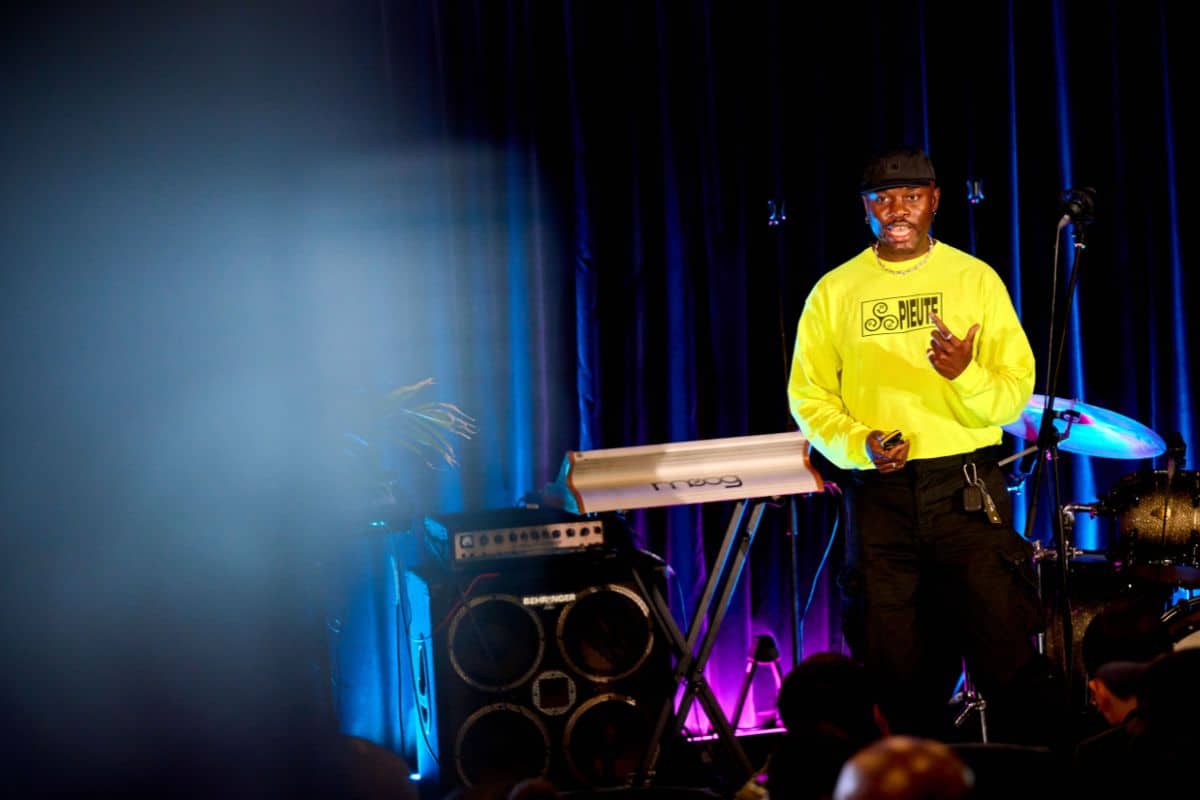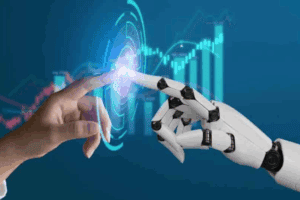Spotify hosted the Soundboard event, which featured discussions on the role of AI in the music industry.

The influence of artificial intelligence (AI) has become increasingly apparent in industries such as writing and graphic design.
Lowering the barriers to entry and offering people artistic and writing skills to produce high-quality work in these fields.
The technology has made its way into music, with renowned US artist and producer Timbaland endorsing the tech tool by launching his own AI music label and introducing an AI artist.
Last week, music streaming platform Spotify hosted the Soundboard event, which featured discussions on the role of AI in music.
Zimbabwean technologist Babusi Nyoni led the conversation with a keynote address, during which he spoke about the evolution of AI in music.
ALSO READ: SA Gen Z’s love for new-age Maskandi and Americans’ craze over Amazayoni music
AI in music
Babusi said AI has shortened the process of making music, in terms of mastering and mixing a song.
“I think there are opportunities outside of this AI-level conversation, to use AI in a way to propel themselves forward,” he said.
However, he acknowledged the criticism that Timbaland and AI have faced in the past few weeks since the producer launched his label.
Babusi mentioned that there was a period when the US producer was soliciting submissions from upcoming artists who were desperate for a big break.
“People are of the opinion that a lot of the music submissions from indie artists might have gone into feeding Suno AI’s model and an unfortunate part of AI as a technology is that all the data that is used has to come from somewhere.”
He said a lot of the companies driving the AI revolution primarily have their headquarters in Silicon Valley.
“Their metrics for success kind of rely on some kind of, excuse my French, fu****g over of someone else. So, what that means then is, lots of music from smaller artists is taken and used to trend because they don’t have the kind of legal representation they need.”
True to Babusi’s words, Timbaland recently apologised for stealing a producer’s beats.
ALSO READ: ‘All of the music I’ve ever made belongs to me’: Taylor Swift wins long battle to own masters
AI influencer marketing
Babusi notes that artists like Timbaland are utilising the AI influencer marketing model to engage with their audiences.
“I think that’s part of what Timbaland is doing, he’s created an AI influencer to push the music that he’s making through Suno AI.
And I think that’s the missing piece, because the music generated on the platform is a bit touch-and-go, but what people need in terms of how we connect with music is also the person behind the music,” said the tech entrepreneur.
Babusi even mentioned how AI has also infiltrated the dating scene, with several people having AI partners.
“There’s this idea that men around the world are so lonely and women are so inaccessible to them and a lot are paying for AI girlfriends,” Babusi said to bursts of laughter in the room.
He says the sacredness of the human connection is being eroded by how much time people spend online.
“It’s so easy for people to speak to an AI that they know is literally AI, but as a life partner… and because you have that, that means there is a subset of audience that is able to look at an AI influencer and just give that entity their full attention.”
He foresees upcoming artists no longer needing to be the faces of music, with AI influencers flooding the market.
“I think that’s very likely in the next five years. But in terms of music production right now, I see AI being used more in very practical points in the music production process, not actually as the entity making the song end to end,” he said.
ALSO READ: ‘It’s not just music, it’s a story’: Showmax celebrates Kabza De Small’s Amapiano brilliance
Looking ahead
He said things are not all doom and gloom because AI’s role in music is still unfolding.
“It’s a really tough conversation, but I think we have more agency than we think we do because all of this is happening right now,” he said.
“We haven’t reached that point yet, it’s up to us putting in place some kind of policies or ways in which we decide to, as publishers [and] streaming platforms, in how we treat AI-generated music.”
NOW READ: Jazz legend Feya Faku dies while on tour in Switzerland
Support Local Journalism
Add The Citizen as a Preferred Source on Google and follow us on Google News to see more of our trusted reporting in Google News and Top Stories.








